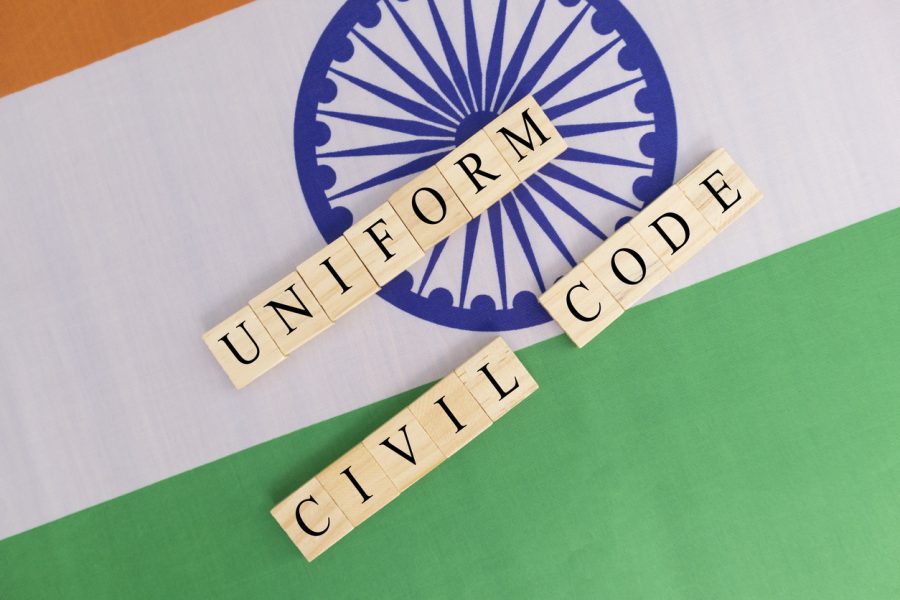
Uniform Civil Code: Private member Bill in Rajya Sabha sparks new row
The controversy over demands for a Uniform Civil Code (UCC) took a new turn on Friday with a Private Member Bill seeking UCC being introduced in Rajya Sabha despite protests from the opposition.

The controversy over demands for a Uniform Civil Code (UCC) took a new turn on Friday with a Private Member Bill seeking UCC being introduced in Rajya Sabha despite protests from the opposition. Since the election season has kicked in, any move to discuss contentious issues like the UCC are likely to spark off a political storm. The bill was introduced by Kirori Lal Meena of BJP who hails from Rajasthan.
In a last ditch bid to block the Private Member bill, the opposition even called for a division, but was outnumbered by a big margin. Only 23 votes were polled against the UCC bill in the Upper House while the ruling dispensation managed to win the day with 63 votes. Announcing the result of the division, Rajya Sabha Chairman Jagdeep Dhankhar declared introduction of the Private Member bill. This means that the legislation sought by Kirori Lal Meena has become a property of Parliament, providing scope for discussion at a later date. While bills introduced by Private Members have very little chance of becoming law, even a debate in Parliament on the controversial issue of UCC could have major political ramifications.
Objections raised
Several Rajya Sabha MPs wondered why Kirori Lal Meena did not heed to requests to desist from introducing the bill as he had done on several occasions in the past. Tiruchi Siva of the DMK even hinted that the bill was being introduced despite an understanding to the contrary. Since the UCC means identical personal laws for all regardless of religion, the opposition is apprehensive that the minorities would feel threatened. The diversity and plurality of the country should not be compromised, they emphasised in Rajya Sabha.
Also read: BJP committed to bring UCC once democratic discussions are over: Shah
Vaiko of MDMK was the first to get on his feet and vociferously oppose introduction of the bill and protest against it. He did not wait for Speaker Jagdeep Dhankar to seek the view of the house on the request for introduction of the UCC bill. As other opposition members also voiced their protest, pandemonium persisted for a while though the attendance was thin as is the case usually on a Friday afternoon. Ultimately, the Rajya Sabha chairman called Vaiko to express his views and the veteran set the tone with the strident opposition. The MDMK chief’s argument was that the bill was against secularism and the diversity of the country should not be challenged.
Abdul Wahab of the Indian Union Muslim League (IUML) followed Vaiko in speaking against the bill and sought its withdrawal. A bill of this nature cannot be implemented in a country like India, he emphasised. Then Elamaram Kareem, John Brittas, V Sivadasan, and Bikash Ranjan Bhattacharya spoke against the UCC bill introduced by Kirori Lal Meena, calling for its outright rejection.
Tiruchi Siva of the DMK called upon the Upper House not to entertain the bill and wondered why it was being introduced now and not withdrawn like earlier occasions. He expressed pain at what he described as attempts to attack the diversity and plurality of the country. Like most members, Tiruchi Siva also said a country of the proportions of India cannot be forced to adopt a single law that will prevail through every part of the country.
Strident attack
L Hanumanthaiah and Jebi Mather of the Congress spoke against the UCC bill, describing it completely unacceptable. Sandosh Kumar of the CPI also opposed the bill and urged upon Jagdeep Dhankhar to not allow its introduction. While the opposition was strident in its attack, the Rajya Sabha chairperson pointed out that it was the right of a member to introduce a bill and it was up to the House to decide whether it was acceptable. Fauzia Khan of the NCP also opposed the bill and termed that it was not a communal issue but a cultural issue, considering the diversity of our people.
Also read: Focus needed on employment & economy, not on bringing Uniform Civil Code: Asaduddin Owaisi
At this stage, Union Minister Piyush Goyal, who is also the leader of the House, intervened and emphasised that Kirori Lal Meena cannot be denied his right to introduce a Private Member bill. Let the bill be discussed in the House, the Union Minister even as BJP members backed him.
Jagdeep Dhankhar who is chairing the Rajya Sabha for the first time since the beginning of the winter session of Parliament, then called for voice vote and declared that the treasury benches had the numbers in their favour. Then the opposition called for division, but failed to stop the bill due to lack of numbers to back their stand. After the votes were counted, it was declared that the ruling dispensation won with 63 votes in their favour while the opposition managed to garner only 23 votes.
Though “The Uniform Civil Code in India Bill, 2020” introduced by Kirori Lal Meena was the first of the many private member bills listed by the Rajya Sabha, lack of numbers showed the opposition was not fully geared to block it. The listing described Meena’s proposal as a “Bill to provide for the constitution of the National Inspection and Investigation Committee for preparation of Uniform Civil Code and its implementation throughout the territory of India and for matters connected therewith or incidental thereto”.
If the bill is not withdrawn as demanded by opposition, it has to come up for discussion during the time allocated for Private Member bills and that could lead to fireworks in the Upper House.

